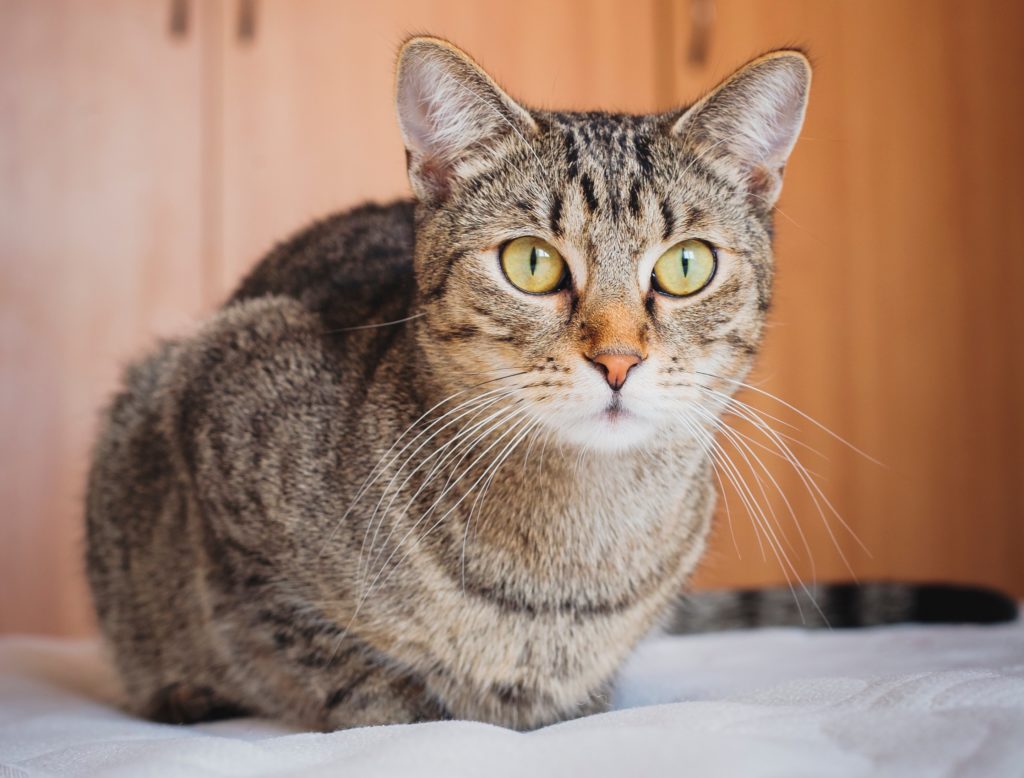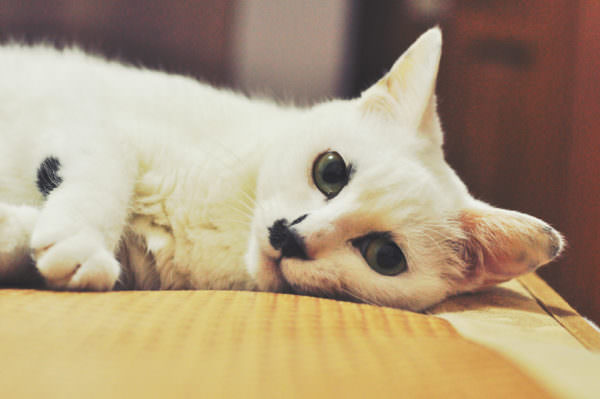Waking in the wee hours to sound of meows or a tap on the face is a part of many cat owners’ world. But have you ever thought about why your cat is awake at these odd hours and why he feels that you should be too?
People who live with cats know that their natural schedules are not exactly like ours. Of course, there is individual variation, even among humans, but most cats are naturally inclined to be more active in the early morning (and at dusk). This tendency is called being crepuscular. Scientists believe crepuscular behavior is an adaption from their wild feline ancestors who instinctively choose to be most active when other dangerous nocturnal predators are less likely to be.
Crepuscular inclinations might explain why your cat is awake when you are sleeping, but possibly not why she feels that you should be too. To explain this part, we have to look at other feline predilections.

Your cat is a tiny hunter. She is not naturally adapted to expect her resources to be provided to her by a human. (That handy arrangement came later in her evolution) Since your hunter is now left at home with resources provided effortlessly and little to do, there is likely some pent up energy. Cats are naturally hard wired to stalk, so their brains and bodies are built for more activity than our domestic lifestyle may afford them. Your cat might wake you because she is bored and you are a stimulus for her.
Because our cats have a relationship with us, they may also crave communication. Meowing and interacting with us are forms of communication. Animal experts agree that cats are attempting to convey physical, emotional, or social needs when they meow and rub on us. It is bemusing that adult felines rarely communicate with each other through meows and meowing seems to be a communication adapted to interface with human beings. I know what my cat is “saying” to me from his sounds and behaviors and you probably know your own cat’s meanings. No one can say if my cat has trained me to understand his meaning or if he has adapted his behavior to accommodate what I seem to understand!
Some of the time, your cat may actually be hungry when he wakes you, but not always, so make sure that you are not feeding your cat at times when he is not really seeking food. Feeding attention-seeking behaviors can lead to obesity for cats.

Just because it is a natural cat tendency, however, does not mean cat owners can never sleep a full night. Even natural tendencies can be adapted. Think of those people who classify themselves as “morning people”, but need to work a night shift. Before you attempt to retrain your cat, make sure that she is healthy and normal. She might be attempting to communicate a medical need. Restlessness and pain can be symptoms of important and common feline disorders. If there is a medical reason, trying to retrain her will be a source of frustration for you both.
To start to modify your cat’s tendencies, be sure to meet your cat’s need to think and move. Make a daily habit of active and interactive play that involves stalking and apprehending. You can tire him out a little more to help encourage quality sleep for you both, all while meeting his emotional needs if you devote some time to one on one play.
On those days when you don’t have time to play, you might have to accept that you will get an early wake-up call!
Do you want to know more about cats and other animals? Follow me on Facebook by clicking here.
